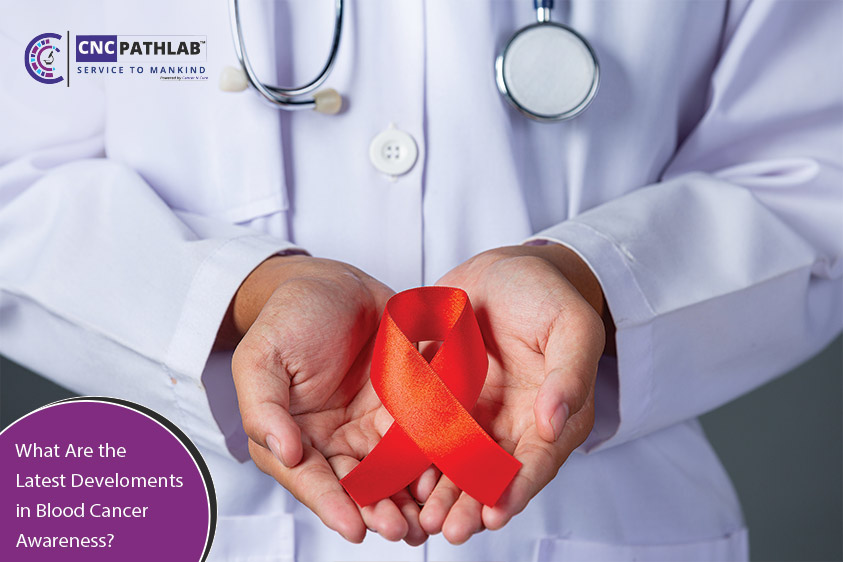What is the relevance and importance of a CBC test?
A CBC (Complete Blood Count) is the common blood test that examines your overall health and helps healthcare providers to easily detect, diagnose and monitor the wide range of diseases, disorders, conditions like anemia, skin infection, and leukemia. The CBC test measures the different parts and features of blood. The CBC test is usually preferred by the doctors to diagnose suspected medical conditions, to monitor the medical condition or for treatment of medical conditions.
The primary uses of CBC test:
- Diagnosis: The diagnosis is to determine the cause of a patient’s symptoms. The CBC test can identify many types of different abnormalities in the blood that are linked to different medical problems.The CBC is commonly employed as a diagnostic test as a result of this. It can confirm or rule out particular illnesses in many circumstances, and it can be used in conjunction with other tests to provide a definitive diagnosis.
- Monitoring: The process of tracking a patient's condition over time is known as monitoring. A CBC can be used to keep track of people who have been diagnosed with blood diseases in the past. It can be used to see how a person's disease has reacted to treatment and to monitor adverse effects from certain medical treatments.
- Screening: Screening is a method of detecting health problems before they manifest as symptoms. A doctor may order a CBC as a screening test during routine check-ups in some instances.
What does CBC measure for?
Red Blood Cell: The Red blood cell is the most important blood cell that carries the oxygen from the lungs to the tissues and the rest of your body part. The CBC test has several measurements of RBCs
- RBC count: Total number of red blood cells in your body
- Hemoglobin: The amount of oxygen carries the proteins
- Hematocrit: The proportion of total blood volume
White Blood Cell: The white blood cell is also called a Leukocyte. The white blood cell is the cell found in the blood that fights against viruses, infection, and parasites.
Platelets: Platelets are also called thrombocytes and are cell fragments that circulate or revolve in blood and play the most important role in blood clotting. Whenever bleeding or clotting happens then platelets help stop bleeding by sticking to the injury site and combining together to form a temporary plug. A standard platelet is the blood count which is the number of platelets in your blood count.
Why is the CBC test used?
A complete blood count is a standard blood test that is frequently conducted as part of a routine physical examination. Complete blood counts can be used to detect infections, anemia, immune system problems, and blood malignancies, among other conditions.
Why is it necessary to have a CBC test?
A complete blood count may have been prescribed by your doctor as part of your checkup or to monitor your overall health. Furthermore, the test can be used to diagnose a blood disorder, an infection, a malfunction of the immune system, or other medical diseases. Keep track of a blood disease that you already have.
During a complete blood count, what happens?.
A tiny needle will be used to obtain a blood sample from a vein in your arm by a healthcare provider. A small amount of blood will be collected into a test tube or vial once the needle is inserted. When the needle goes in or out, it may sting a little. It normally takes less than five minutes to complete this task.
What does a CBC look for?
A complete blood count (CBC) examines, counts, analyses, and researches a variety of elements of your blood:
- The total amount of white blood cells are counted in a CBC without a differential.
- CBC with differential diagnosis. White blood cells come in five different types. The difference counts the number of each type of white blood cell in your body.
- Hemoglobin: tests evaluate hemoglobin, the oxygen-carrying protein in red blood cells.
- Hematocrit: The concentration of red blood cells in your blood is referred to as hematocrit.
- A CBC informs your healthcare provider that:
- How many new blood cells are produced by your body.
- The number of red blood cells (erythrocytes), white blood cells (leukocytes), and platelets (RBC or erythrocytes).
- Blood cell size and shape.
What does a CBC look for?
Your provider can use a CBC blood test to diagnose a variety of illnesses, disorders, diseases, and infections, including:
- Anemia is a condition in which the body's red blood cells are insufficient to transport oxygen throughout the body.
- Disorders of the bone marrow, such as myelodysplastic syndromes.
- Agranulocytosis, thalassemias, and sickle cell anemia are examples of disorders.
- Infections or other issues that result in an unusually low or high white blood cell count.
- Leukemia and lymphoma are two examples of cancers.
- Chemotherapy and certain pharmaceutical drugs have side effects.
- Deficiencies in vitamins and minerals.
When I have a complete blood count (CBC), what should I expect?
To prepare for a CBC, you don't need to do anything. A needle is inserted after your provider cleans your arm. It's possible that the needle will sting or pinch a little, but it won't hurt. The needle is frequently inserted into the baby's heel in babies.
Your provider takes a sample of your blood and collects it in a tube using a needle. Your provider may require more than one tube of blood.
- Your physician will remove the needle and apply a bandage to your arm after extracting blood.
- Your blood is sent to a lab by your doctor.
- Your body's blood supply is swiftly replenished.
What are the usual complete blood count ranges?
The usual range of hemoglobin is:
- Male (ages 15+): 13.0 - 17.0 g/dL
- Female (ages 15+): 11.5 - 15.5 g/dL
Hematocrit normal range:
- Male: 40 - 55%
- Female: 36 - 48%
Platelet Count normal range:
- Adult: 150,000 - 400,000/mL
White blood cell (WBC) normal range:
- Adult: 5,000-10,000/mL
Point to be Noted
You can book CNC Pathlab CBC tests as we are equipped with a troop of experienced health staff that has access to state-of-the-art technology. CNC Pathlab is your reliable medical lab, highly appreciated for accurate test reports by its huge customer base. Get quick results at the best in the industry rates.
Even in the middle of a pandemic, the health and safety of our clients is important. CNC Pathlab has established a number of safety steps to prevent the spread of sickness. These precautions include: routine cleaning and disinfection of the facilities; no visitors allowed; no entry into the lab without a mask; patient/staff screening at the door; and a separate flu clinic outside the lab. We have initiated specialized Video Consultations with our Super Specialist doctors for patients who are still apprehensive to attend the lab, ensuring that their treatment is not delayed.

.jpg)
.jpg)


.jpg)
